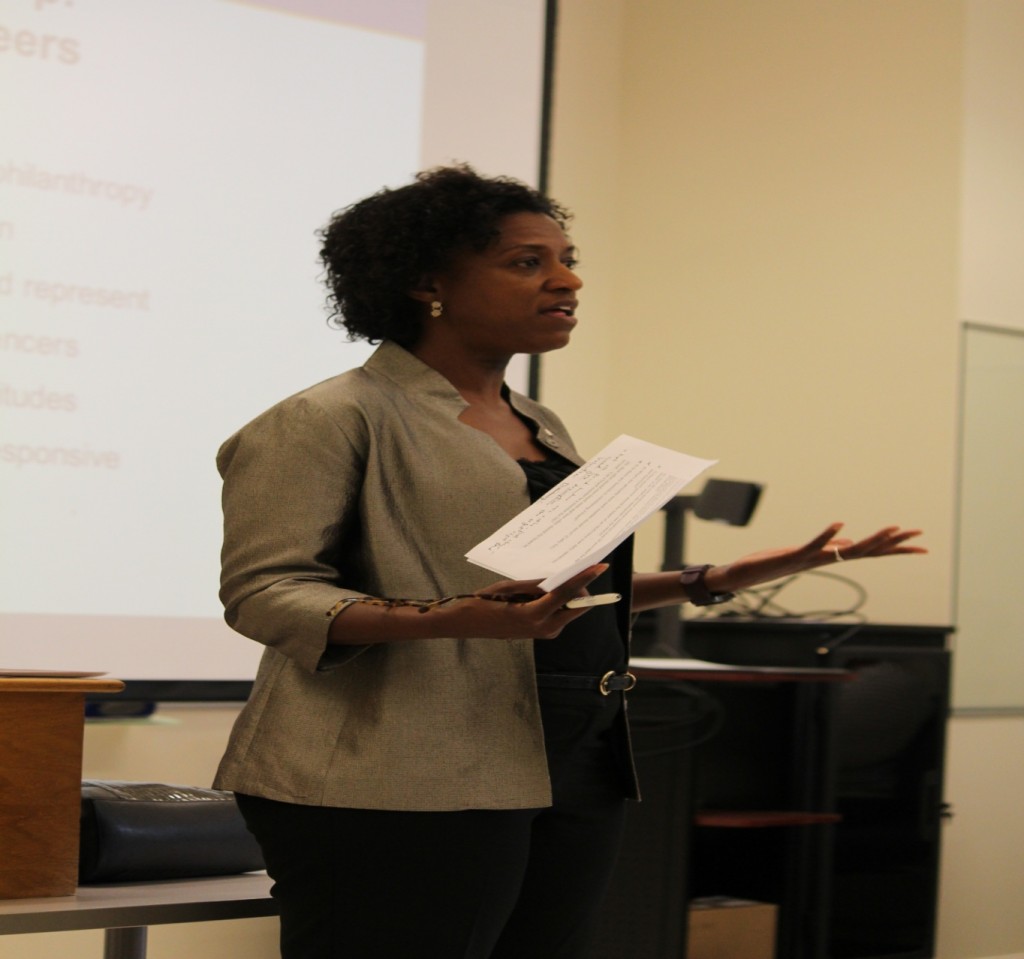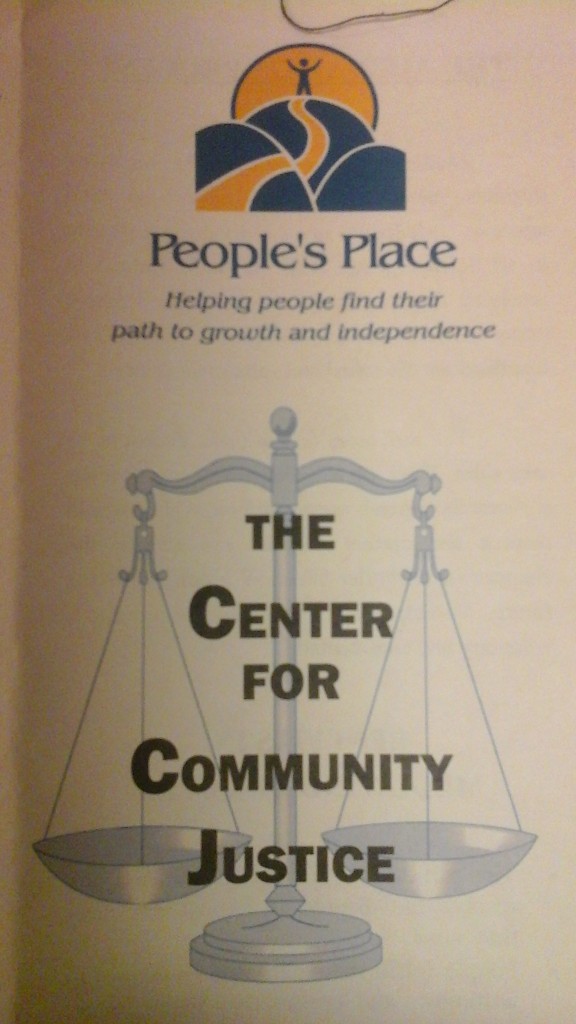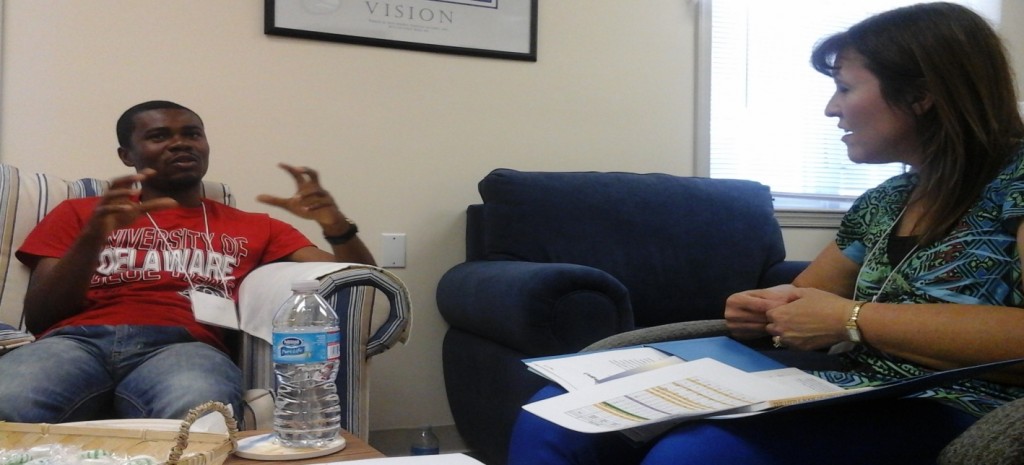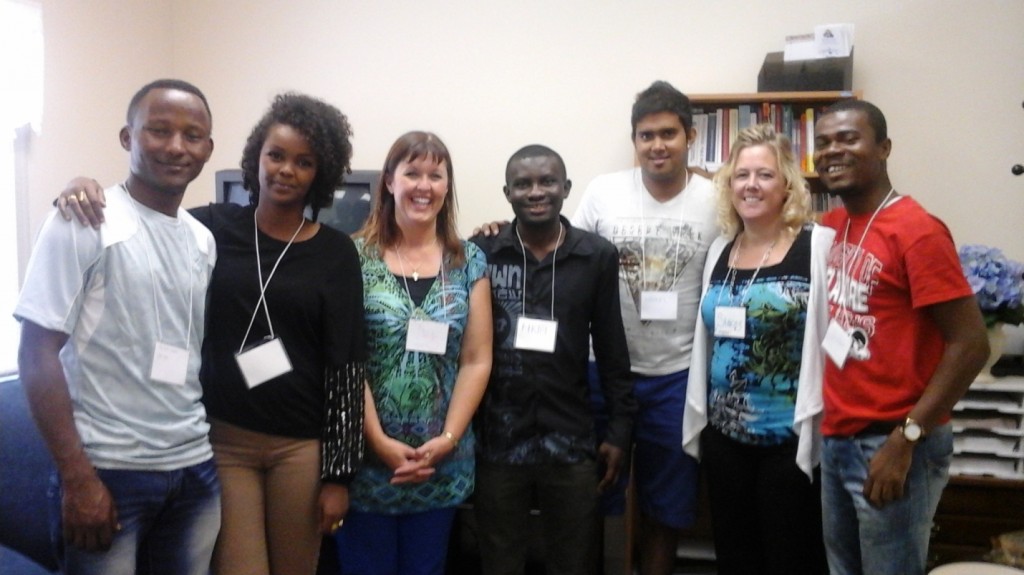Can you believe that we only have eight days left until we leave UD, its friendly environment, and its friendly staff? When I received an email from the US Embassy in my country regarding the WFYAL program, I cannot describe the excitement I felt. A couple of days after receiving the email from the embassy about my selection, I started to count down how many months, weeks, days, and even hours were left until I came to the USA. Sometimes, I even wish I could jump back in time to some of those long days early on when we all met here at UD. It is going quickly because our days are so full of fun and learning new and wonderful things. Friday was just such a day.
On Friday, 18 July 2014, the fellows divided into two groups and some of us visited a non-government organization called the Center for Community Justice in Milford, DE, while the other group attended an academic session.
On campus, the morning session presenter was Monica Taylor, who spoke about board and volunteer management of non-profits. The presenter seemed very knowledgeable of the topic. Questions from most fellows present in this session revealed that many on the board of directors of non-profits are either inactive (they’re just there in name only and do not want to dirty their hands by addressing challenges) or, if active, they tend to be overbearing in the organizational activities, putting themselves where they are not needed. Taylor addressed these challenges mostly by sharing her experience in this field, mentioning what were her successes, and giving tips on how to make the directors work more effectively by giving them particular job descriptions. It is not everyday that one will hear UD fellows say that the session was too short. It is evidence to prove that Friday morning was very productive!
The other group visited the Center for Community Justice in Milford, DE. We arrived at the Center at 10:12 a.m. and started with a presentation by Debi Zistl, who is in charge of mediation. The organization provides a wide range of mental health and social services. The Center for Community Justice is a place where conflict is resolved and reconciliation takes place. Some of the services that the Center provides are conflict resolution classes, shoplifter alternatives, and developmental disability assistance.
The discourse during our visit was mostly about the mediation process, the challenges during mediation, and the benefits of mediation. The Center for Community Justice mediates tenant issues and family issues. The key point from the discussion was the importance of confidentiality, listening skills, and giving people a safe place where they can talk to each other. The Center engages in mediation only when the two parties believe that they have a problem that needs to be solved and does not receive referrals from people outside the conflict. The fellows asked different questions about confidentiality issues, mechanisms of insuring confidentiality, and skills and qualifications required for mediation.
Whether on campus or at the Center for Community Justice, the fellows had a great day!







